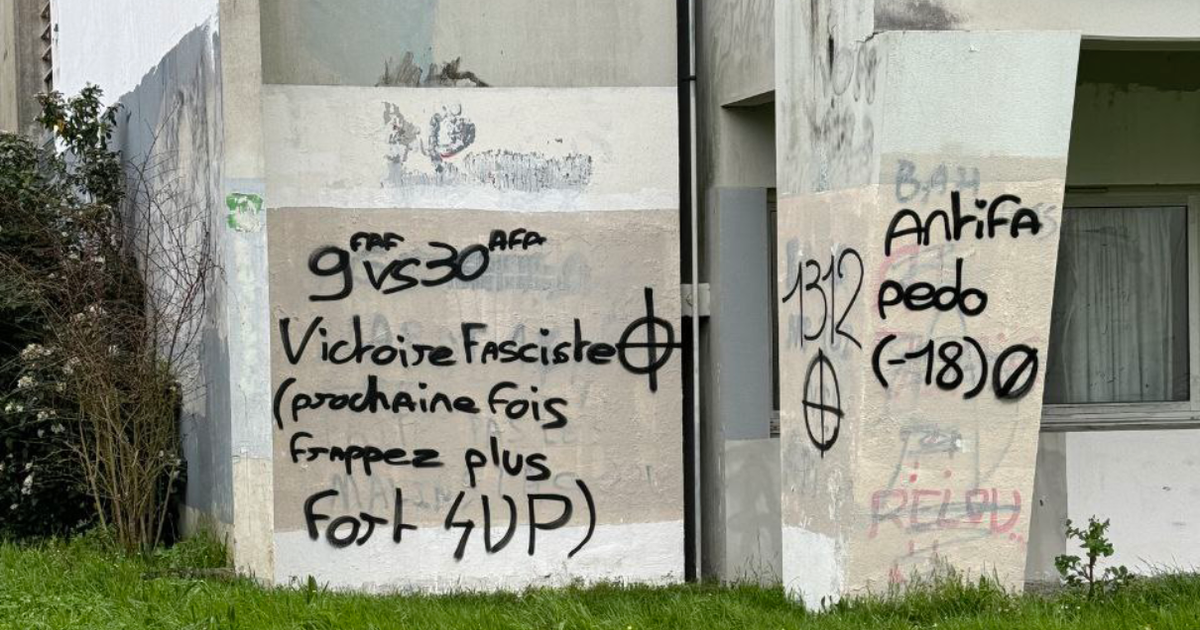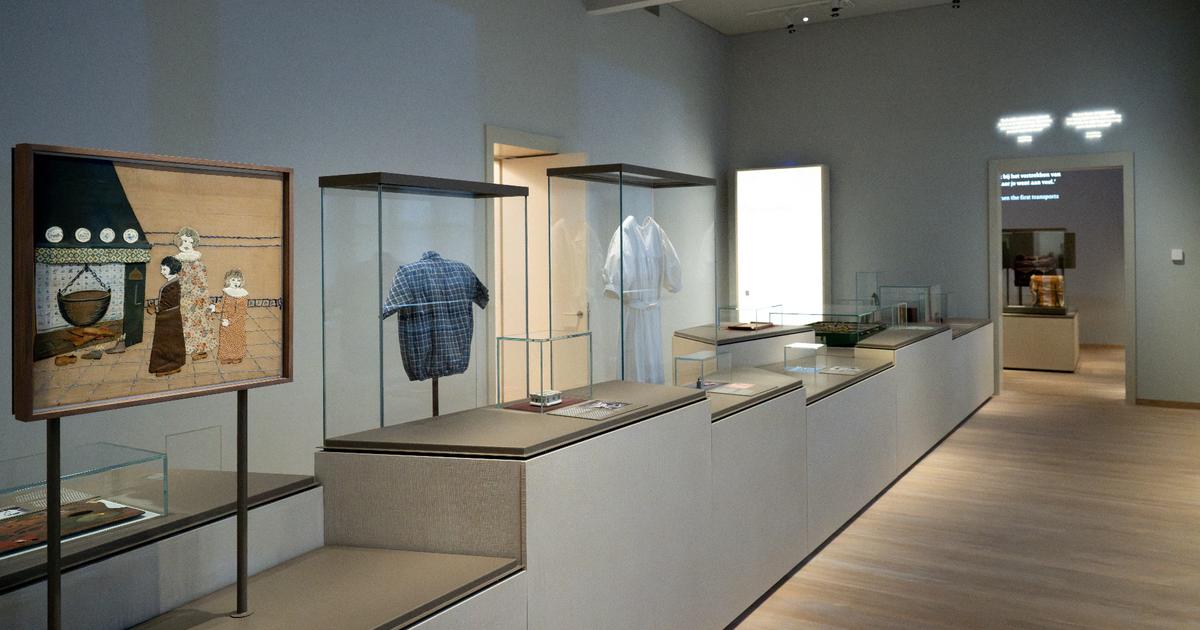Enlarge image
Wrapping of the figure depiction »People·s Justice« (2002) by the collective Taring Padi on Monday at the Documenta in Kassel
Photo: Swen Pförtner / dpa
A little over a year ago, the artist Moshtari Hilal and the author Sinthujan Varatharajah made a proposal during a live Instagram talk.
Wouldn't it make sense to find an equivalent for the phrase »people with a migration background«: namely to introduce the term »people with a Nazi background« for Germans who are descendants of Nazi perpetrators.
It was an apt polemic, it wanted to raise awareness of something and it achieved what it was supposed to achieve: there was great resistance to this proposal.
This in turn showed what is still going on in this country, despite an intensively cultivated culture of remembrance, and what studies also show: Far too many Germans still do not want to realize that it was their own parents, grandparents, great-grandparents who did it played their part in making National Socialism work the way it did.
Reasonable Germans do recognize that there is current anti-Semitism in this country, and that it is getting worse.
But as soon as the topic gets close to you, the resistance is great here too.
Leftists accuse rights of anti-Semitism, it works the other way around too.
But the willingness to voluntarily ask oneself whether there are anti-Semitic patterns in one's own thinking or whether one is paving the way for anti-Semitic thinking by refraining from doing so and looking the other way is not particularly pronounced.
more on the subject
Olaf Scholz and the Documenta: A scandal in this governmentA commentary by Ulrike Knöfel
Jew hatred at the Documenta: This art kills A guest article by Richard C. Schneider, Tel Aviv
Opponents of Israel at the Documenta: »Judensau« in modern times A column by Alexander Neubacher
Refraining from doing so, turning a blind eye, defending yourself – these were the hallmarks of the preparations for the documenta: Even at the press conference before the opening, Kassel’s Mayor Christian Geselle (SPD) and Hesse’s Minister for Science and Art, Angela Dorn (Greens), complained about a “medially imposed anti-Semitism debate”.
As if it were not at all possible that the arts, which is considered to be a sphere of cosmopolitanism, could produce crooked tones, as if the concerns expressed by the Central Council of Jews in Germany were not always worth considering.
Parts of the local art critics were also frighteningly convinced that the Documenta was immune to anti-Semitic ideas.
So for days, weeks, years to come, one can get excited about the work of the Indonesian collective Taring Padi, which features, among other things, a man with a pig's nose wearing a scarf with a Jewish star.
But it should not be overlooked that the real problem lies in Germany, namely in precisely the defensive attitude of the Minister of State for Culture Claudia Roth, the Documenta management and parts of the art critics towards warnings, objections, references in the run-up to the Documenta, in the refusal to think thoroughly, the refusal of self-questioning, whether perhaps what shouldn't be can be.
Whole television reports and articles about the Documenta suggested that the discussion about anti-Semitism was not worth mentioning.
The documenta should create space for perspectives of postcolonialism.
The post-colonial movement deals with the consequences of colonial rule from the perspective of the victims and also uncovers crimes committed by the former colonial rulers.
Germans do well to listen carefully to what is being said.
Germany has a colonial past.
But if you listen, and all those who dealt with the Documenta had to, whether they were cultural politicians, cultural managers or cultural journalists, you could know that within the – quite heterogeneous – postcolonial movement there are also positions that equate the founding of Israel with colonialist crimes.
And it is not at all possible, as a German, not to react to such a position and not to present a different point of view:
Unlike European colonial rulers, who went to Africa out of greed and an inhuman ideology of superiority, German Jews fled to today's Israel out of sheer need, fleeing murderous captors, torture and disenfranchisement.
They fled from Germany.
There are good reasons why representatives of the postcolonial movement refuse to be lectured by white Europeans.
The German people responsible for the Documenta probably wanted to avoid exactly that: lecturing the guests.
But the decision not to look closely has now created the scandal that should be avoided.
Is it at all an act of instruction when, as a German, you state that the founding of the State of Israel is connected with German crimes and that this is the crucial difference to colonialist efforts?
First of all, it is this: a statement about ourselves. The attempt to see the guilt of one's own ancestors, the attempt to deal with it.
An admission of the Nazi background, which very, very many in this country have.
An admission that there is a current anti-Semitism in this country, which in turn often hides behind criticism of Israel and which - unfortunately this also happens - sometimes uses criticism of Israel from other countries in this game of hide-and-seek.








/cloudfront-eu-central-1.images.arcpublishing.com/prisa/VB2FZXRBEFBPNAN5IFP75J6YOM.jpg)



/cloudfront-eu-central-1.images.arcpublishing.com/prisa/KMEYMJKESBAZBE4MRBAM4TGHIQ.jpg)


